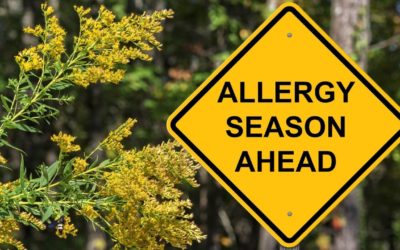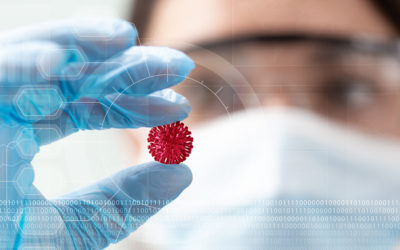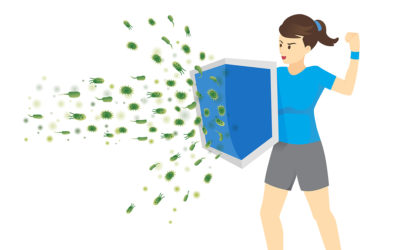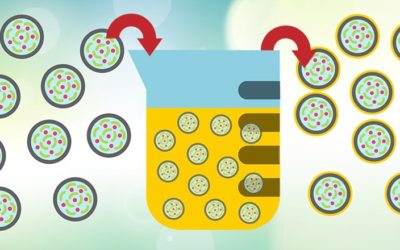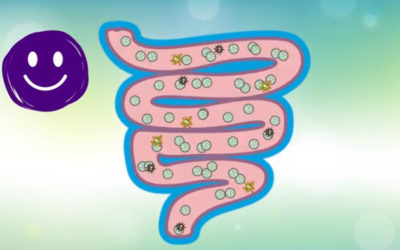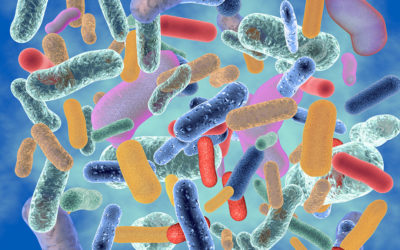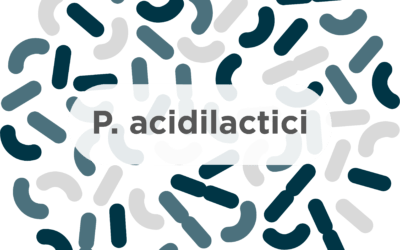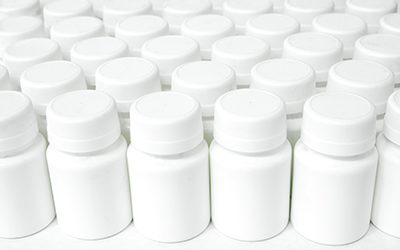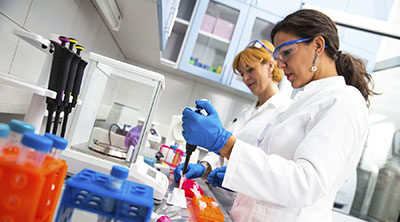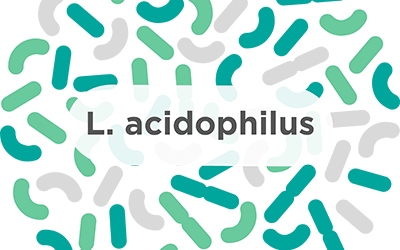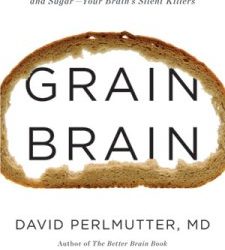Probiotic Education
B. lactis – A common probiotic strain
B lactis (Bifidobacterium lactis) is a probiotic bacteria that has proven to fight tumor growths, improve digestion & enhance immune system.
Which Probiotics are Best for Seasonal Allergies?
What Causes Seasonal Allergies? Spring is just around the corner, but for every blooming flower and singing, the bird is a running nose and an itchy throat. That’s right, it’s allergy season. Seasonal allergies are a natural result of your body’s immune system...
Are Seasonal Allergies Related to Gut Health?
Does Poor Gut Health Increase Seasonal Allergies? Are you getting ready for spring? Unfortunately, for people with seasonal allergies, spring pollen is a huge enemy. But if you're one of these people, you can still enjoy the new season without the itching, sneezing,...
Can You Take Probiotics with Allergy Medicine?
Why are seasonal allergies so common in the spring? Spring is a time for celebration in many parts of the world where snow and slippery ice give way to sunshine and blooming flowers. I’m as excited as the next person for warmer weather, but there’s an aspect of spring...
What are Prebiotics?
Here at Humarian, we’ve put great effort into making our Probonix products stand out in the crowded probiotic market. Part of these efforts has gone into providing education and transparency about everything that goes into our products. To that end, we’ve written...
Science vs. COVID-19, Flu, Colds & Allergies – Part 3 of 3: Viruses and Supplementation
As I mentioned in part 1, no. This is a very controversial subject, thus I write this carefully. It is important that as we discuss this topic, we do not contribute to the spread of misinformation. Please make sure that your sources are trustworthy and that you are referencing original sources, as important information is often taken out of context from secondhand sources. False reassurances, false alarms, and baseless recommendations all have the potential to cause harm, so be particularly mindful when sharing or receiving COVID-19 related information from friends and family. COVID-19 evidence is changing by the day. It’s likely that even some of the information presented in this article will be outdated before long, so make sure to always check multiple credible sources.
Science vs. Covid-19, Flu, Colds & Allergies – Part 1 of 3: Prevention Methods
The answer is no, so far as we currently know. Before diving into that information, we would like to express our sympathies regarding the constantly changing information revolving around Covid-19 and the emotional stress that it creates. We are like ping-pong balls bouncing all directions as new research continues to emerge, causing changes in recommendations and protocols to best protect ourselves and our loved ones from Covid-19. This can leave us feeling confused, frustrated, or hopeless. However, it is this same science that gives us hope. Let’s talk about science for a moment.
Why Should You Choose Probonix?
Shopping for probiotics can be tough. There are hundreds of different products to choose from, and it isn’t easy to know what’s best from just looking at the bottle. We’ve talked about some of the advantages Probonix has over other probiotics in previous posts, but we’re going to break it all down here today. Here are the some of the reasons why we think you should choose Probonix over other probiotics.
Probiotics and Immune Health in the Elderly
Immune health is important at any age, but it becomes increasingly important as we age. This is due to a principle known as immunosenescence, which refers to the gradual deterioration of the immune system brought on by natural age advancement. Immunosenescence is tied to difficulty developing immunities after vaccinations, reduced ability of lymphocytes (T and B cells) to fight off infections in the body, increased susceptibility to disease due to epithelial barrier deterioration, and more. Some of the deterioration tied to immunosenescence is caused by secondary factors associated with age, such as lessened physical activity, changing dietary needs, and increased need for medication.
Probiotics and Respiratory Health
Respiratory health has been a hot topic throughout the world over these last several months. Face masks and respirators have become hot commodities, and immuno-compromised individuals and those with respiratory conditions have had to be especially careful during the COVID-19 pandemic. I’ve never given too much thought to the relative health of my lungs, but it’s something I’ve found myself thinking about quite often this year. I’m sure the same is true for many of you.
Probiotics and the Immune System
Can probiotics strengthen your immune system? It is a commonly mentioned claim when probiotics are discussed, but rarely explained. As we explained in an earlier blog about Leaky Gut, the gastrointestinal (GI) tract is technically outside of the body. It may sound strange, but you can think of it in the same way that the hole in the middle of a donut is not actually part of the donut. Food passes through the GI tract, but it does not actually enter the body until it is digested and absorbed into the bloodstream and surrounding tissues. Because of this, it makes sense that approximately 60-70% of your body’s immune system surrounds the GI tract. This puts it in perfect position to intercept harmful substances that are ingested and prevent them from entering the body.
How Probiotics Keep You Healthy
We’ve written plenty of blogs about different ways that probiotics can help to keep you healthy, but most of them have been deeper dives into specific conditions or promising new studies. So this time, let’s zoom out a bit. Let’s talk about how probiotics can help to keep you healthy and some of the most common reasons people take them.
Can Probiotics Help Infants with Colic?
Between changing diapers, constant feeding, doctor visits, erratic sleep schedules, exhaustion, and just generally learning how to care for an infant, new parents have plenty to worry about in the first few months after birth. Unfortunately, about 25% of parents also have to deal with infant colic, a common gastrointestinal disorder that occurs in newborns one to three months old and leads to prolonged and often intense crying.
Side Effects from Probiotics
If you’ve kept up with the Humarian Blog for long, you know that we talk about probiotics all the time. Whether they’re improving your digestion, boosting the body’s immune capabilities, helping infants with diarrhea, or reducing the severity of IBD, probiotics offer...
All About the Acid that Makes Probonix Special
Probonix stands above other products in the crowded probiotic market for many reasons. Humarian is one of the only probiotic companies to be loud and proud about the scientific testing we have conducted to prove the effectiveness of our products. Probonix is one of...
Video Series – Six Truths Wrap Up
Now that you’ve had a chance to learn about the Six Truths you should know before choosing a probiotic, it’s time for a quick recap. Truth 1: Your body needs good bacteria There are more than 100 trillion bacteria living in your body! A large number of these bacteria...
Video Series – Truth #6: Few Probiotics Have Been Scientifically Tested
Shopping for probiotics can be tough. There are hundreds of products to choose from, and it’s not easy to know what’s best from just looking at the bottle. Many probiotic companies like to flaunt large CFU numbers to draw you in, but the unfortunate truth is that most...
Video Series – Truth #5: Having Gazillions of Live Cultures (CFUs) Does Not Make It Better
If you’ve shopped for a probiotic supplement before, you’ve probably noticed one number emphasized on the bottles, the CFU count. CFUs, or colony forming units, represent the number of live probiotic bacteria that are supposed to be in each serving. Probiotic...
Video Series – Truth #4: Not All Probiotics Need to Be Refrigerated
One of the biggest misconceptions regarding probiotics is that all of them need to be refrigerated. Originally, packaged probiotics were full of active species that were unprotected and constantly replicating. Refrigeration was needed for these probiotics in order to...
Video Series – Truth #3: The Way Your Probiotic Is Prepared Is Critical
Whether in tablets, capsules, or liquid form, the method of delivery for your probiotic has little impact on its effectiveness. All that really matters is that the probiotic bacteria are able to make it to your gut alive. Probiotic companies like to brag about how...
Video Series – Truth #2: Knowing Which Strains Keep You Healthy Is Important
Probiotic strains help to promote healthy digestion and work to strengthen your immune system. There are many kinds of probiotic bacteria, and each has unique functions within the body. It’s important to know what the different probiotic strains do, so you can choose...
Video Series – Truth #1: Your Body Needs Good Bacteria
There are more than 100 trillion bacteria living in your body. In fact, you have more bacteria in your body than cells! Some bacteria in your body are harmful and can be responsible for a wide range of health issues. They can cause everything from diarrhea to...
Video Series – The Six Truths You Need To Know Before Choosing A Probiotic
There are hundreds of probiotics claiming to be the most effective product on the market. So how are you supposed to know which one to choose? How can you tell what is marketing hype and what is fact? Over the next several weeks, we’re going to release a series of...
How Probonix is Made
At Humarian, we follow Good Manufacturing Practices (GMP). We source the highest quality raw ingredients. Each shipment of our acids, inulin, probiotics, stevia, monk fruit, and organic flavoring is lab certified upon arrival and re-verified at multiple steps...
Probiotics and CFUs: How Many is Enough?
Probiotics are defined as ‘live microorganisms that when administered in adequate amounts confer health benefits on the host’. The potential benefits of probiotics have been well documented, but there is still plenty of confusion about how to evaluate the...
Probiotics vs. Digestive Enzymes
Some of the most common questions we receive at Humarian involve comparisons between probiotics and digestive enzymes. What’s the difference between them? Which one should I take? Aren’t they the same thing? While probiotics and digestive enzymes are both marketed as...
E. faecium – A common probiotic strain
E. faecium can have positive effects on non-specific immune responses in healthy dogs, as shown by this study.
Probiotics: Single Strain or Multiple Strains? Which is better?
If you’re reading this article, you probably have already figured out that probiotics are good for you, but maybe you’re still trying to figure out how to weigh your options. There are so many facets to consider when selecting a probiotic that it can get overwhelming....
L. gasseri – A Common Probiotic Strain
Lactobacillus gasseri (L. gasseri) is a probiotic bacterium that is found naturally in the genital, urinary, and digestive systems of the body. It is also present in breast milk, fermented foods, and dairy products. L. gasseri serves many important functions in the...
L. fermentum – A common probiotic strain
Lactobacillus fermentum (L. fermentum) is a probiotic bacterium that is located naturally in the mouth, gastrointestinal tract, and vaginal tract in humans. It is more survivable in acid and bile than other probiotic strains.1 L. fermentum offers a number of potential...
L. brevis – A common probiotic strain
Though not as widely recognized as other lactobacillus strains, like L. acidophilus and L. casei, Lactobacillus brevis (L. brevis) is a wonderful candidate for probiotic supplementation. This probiotic bacterium is regularly found in sauerkraut and pickles. Like other...
P. acidilactici – A common probiotic strain
P. acidilactici is a highly survivable probiotic strain that has been shown to provide a number of benefits when taken as a regular probiotic supplement. We’ll talk about a few of those benefits here. P. acidilactici is extremely resistant to the acidic environment of...
L. salivarius – A common probiotic strain
L. salivarius is a probiotic strain that provides a number of benefits to your body, such as lowering cholesterol, relieving asthma, and reducing tissue inflammation. It is found throughout the body, but it is particularly concentrated in the saliva. Consequently, one...
L. casei – A common probiotic strain
Lactobacillus casei is a probiotic bacterium that can be found in the reproductive and gastrointestinal tracts of humans, as well as cheeses, wines, pickles, and other fermented foods. L. casei has been shown to provide a number of beneficial effects in the body....
L. helveticus – A common probiotic strain
Lactobacillus helveticus (L. helveticus) is a lactic acid bacterium that is used in the manufacturing process of many Swiss and Italian cheeses, such as Emmental, Gruyere, and Parmigiano Reggiano. It has recently been accepted as a medicinal ingredient in Canada’s...
S. thermophilus – A common probiotic strain
Streptococcus thermophilus (S. thermophilus) is a probiotic bacterium found in the digestive tract. It is one of the two original bacterial strains used to make yogurt. This acid-resistant strain is one of the most effective at modulating the immune system, improving...
L. Lactis – A common probiotic strain
L. lactis, a probiotic bacteria, is commonly found in everyday life more easily than other traditional probiotic strains. You’ve probably had some from eating cheese or drinking beer at some point. This is due to the fact that L. lactis has the ability to produce...
L. paracasei – A common probiotic strain
L. paracasei is a probiotic bacterial strain that can be commonly found in the mouth and intestinal tract, as well as a number of dairy products. This bacterium can have positive effects on digestion and basic immune functions. It also offers preventative benefits for...
Did You Know: Very Few Probiotics Have Been Scientifically Tested
Shopping around for probiotic supplements is tough. There are hundreds of products to choose from, and it’s tough to tell what product to try from a bottle alone. Let’s pretend for a minute that every probiotic you looked at worked exactly as advertised. You’d learn...
Did You Know: Having a Higher Number of Probiotics (CFUs) Doesn’t Make it Better
If you’ve shopped for a probiotic supplement before, you’ve surely noticed one statistic that all probiotics emphasize on the bottle, the CFU count. CFUs, or colony forming units, represent the number of live probiotic bacteria that are supposed to be in each serving....
Did You Know: Not All Probiotics Need to be Refrigerated
We still get loads of questions asking if all probiotics need to be refrigerated. This question is the result of a common misconception, a relic from the early days of probiotic sales where they were packaged and sold in a manner that required refrigeration for...
Did You Know: How Your Probiotic is Prepared is Critical
Probiotic supplements are a fantastic way to improve general health. They help to bolster the immune system, improve digestion, and crowd out harmful bacteria in the gut. Most manufacturers of probiotics like to brag about how many billions of live cultures their...
L. Plantarum – A Common Probiotic Strain
Lactobacillus Plantarum (L. plantarum) is a probiotic bacterium that helps to improve digestion and bolster the body’s immune system. More importantly, it serves important functions in fighting off molds, fungi, and their respective toxins that can threaten the...
B. Longum – A common probiotic strain
Bifidobacterium longum (B. longum) is one of the many important probiotic bacteria found in the human body. It is one of the primary probiotics that is found naturally in breast-fed infants, and performs a number of beneficial functions in the body.1 B. longum helps...
Did You Know: Different Probiotic Strains Do Different Things
Probiotics are healthy bacteria that live in your gut. They help you with digestion and strengthen your immune system. There are many kinds of probiotic bacteria, and each has unique functions within the body. It’s important to know what the different probiotic...
L. acidophilus – A Common Probiotic Strain
Lactobacillus acidophilus (L. acidophilus) is a probiotic bacterium that is found naturally in the mouth, intestines, and in the vagina. This probiotic helps to guard against infections and diseases in the body, and it has even been used during chemotherapy...
B. infantis – A common probiotic strain
Bifidobacterium infantis (B. infantis) is a probiotic bacterium found in the guts of adults and children. It is also one of the main strains of good bacteria that are typically found in infants. It has been the focus of research revolving around its ability to treat...
Antibiotics and Probiotics
Antibiotics are some of the most useful medications in use today. They combat a wide range of health issues and treat life-threatening disorders. They are perceived to be effective while having minimal risks. This combination of factors explains why they are also...
Did You Know: Your Body Needs Good Bacteria
There are more than 100 trillion bacteria living in your body.1 In fact, you have These bacteria can be responsible for a wide range of health issues from diarrhea to food poising to tuberculosis. Your body might be overloaded with harmful bacteria for a variety of...
B. breve – A common probiotic strain
Bifidobacterium breve (B. breve) is one of the most helpful probiotic bacteria in the human body. Amongst probiotic bacteria, it is unique in its ability to compete with other harmful bacteria due to the large variety of molecules that it can digest. It makes up the...
B. bifidum – A common probiotic strain
Bifidobacterium bifidum (B. bifidum) is the most common probiotic bacteria found in the human body. It’s a good thing it’s so plentiful because this bacteria is responsible for a wide range of beneficial effects in the gut like maintaining the balance of good and bad...
L. reuteri – A common probiotic strain
Lactobacillus reuteri (L. reuteri) is a probiotic bacteria that lives in the mouth and gut of people. It is most commonly known for its benefits in treating several childhood ailments, but healthy doses of L. reuteri are capable of providing a wide range of benefits...
L. rhamnosus – A common probiotic strain
Lactobacillus rhamnosus (L. rhamnosus) is a probiotic bacteria that is most well-known for having incredible tolerance to the harsh gastric acid and bile found in the stomach and digestive system. Due to this extraordinary resilience, L. rhamnosus is an important...
The Brain-Gut Connection
The connection between the gut and the brain is becoming a hot topic in the gastrointestinal and psychiatric fields. Microorganisms in the gastrointestinal tract of human are essential to health. They are from an intricate tapestry of organisms that can benefit body...
David Perlmutter Author of Grain Brain on Gut Bacteria and Your Health
In a recent interview, David Perlmutter spoke our language. Healthy gut bacteria causes healthy living. As we have shared with everyone we meet, healthy guy bacteria is the key to your health. It does so much more than help process food. It helps with your mind, your...



